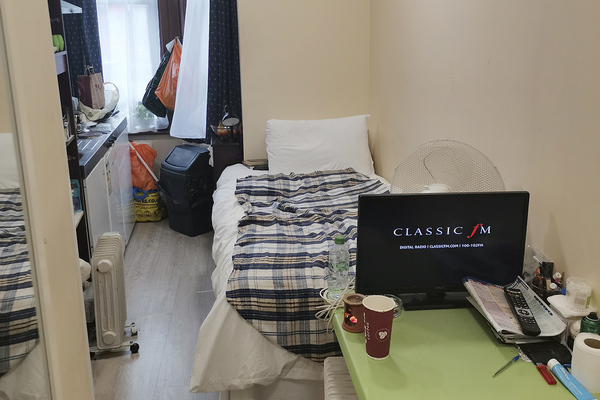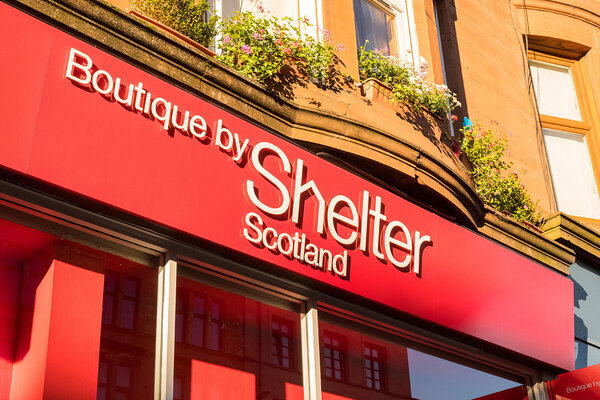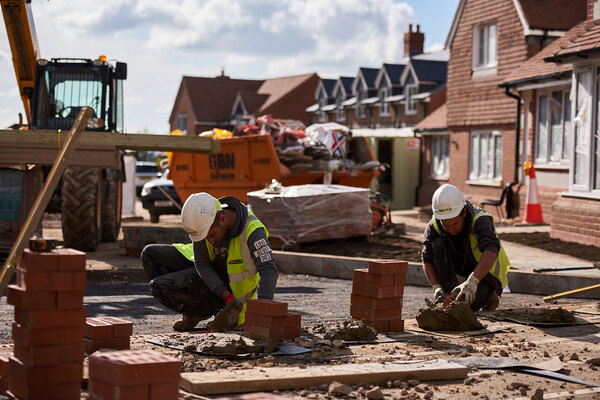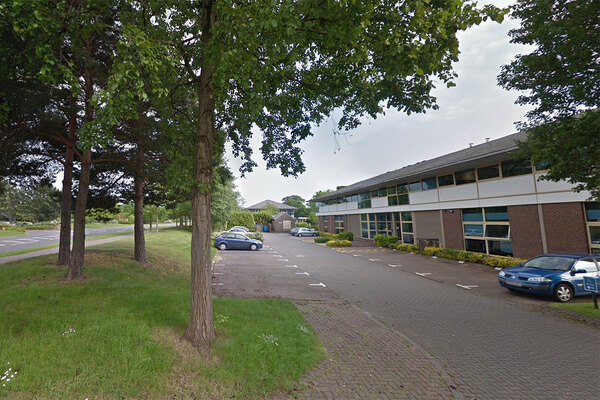Shelter Scotland calls for Edinburgh leaders to be removed in dispute over homelessness policy
Shelter Scotland has called for the leadership of the City of Edinburgh Council to be removed in a dispute over its use of unlicensed houses in multiple occupation (HMOs) and a request to relax homelessness laws.
In an extraordinary intervention, the charity called for the Scottish government and Scottish Housing Regulator (SHR) to step in and remove the council’s leadership, who they claimed had decided to “strip homeless households in the city of their human rights”.
However, the council told Inside Housing that the charity’s press release was “factually incorrect and misleading” and that it has written to the organisation’s director.
At a protest outside Edinburgh City Chambers on 12 December, Shelter Scotland argued that the council was seeking to legitimise bad practice, including placing homeless households in unlicensed HMOs. It is a criminal offence to operate an HMO without a licence.
The charity said it had “lost confidence” that Edinburgh Council will uphold the rule of law. It is the first time Shelter Scotland has called for special measures to be taken against a local authority.
The dispute centred on a meeting of the city’s housing, homelessness and fair work committee on 3 December, in which Shelter Scotland said the city’s elected and unelected members “voted in favour of suspending lifeline housing rights” until March 2028.
According to Edinburgh Council, the committee agreed to write to the Scottish government to request, until 31 March 2028, a “dispensation” in the law for it to be able to use unlicensed HMOs as long as there was a “focus on the property as being safe to occupy”.
The councillors’ other demands included bringing back laws requiring a local connection to a city before being assessed as homeless, as well as relaxing the law that classes properties with shared facilities as unsuitable.
The committee said the measures were required to ensure that the council had “sufficient capacity” to accommodate vulnerable individuals.
“This is not a roll-back of rights, but a short-term necessary preventative step to protect vulnerable people from homelessness in Edinburgh,” it said.
It added that if the Scottish government agreed to the changes, councillors would take another decision in the committee before they agreed to recognise them.
As a result, the council argues that no decision was made on any legislation or the rights of any individuals at the meeting.
Edinburgh currently has the second-highest level of homelessness in Scotland, with 5,250 households living in temporary accommodation in the city. Of these, over a quarter are in properties that breach the Unsuitable Accommodation Order.
Alison Watson, director of Shelter Scotland, said: “It should outrage everyone in Scotland that officers and elected members within a local authority have unilaterally decided to strip people in the capital of a fundamental human right.”
She said: “Shelter Scotland has lost confidence in the leadership of the City of Edinburgh Council to do the right thing and uphold the rule of law. The leadership has systematically failed homeless people for years and is now stripping them of their rights to cover up their own failures.”
She called for John Swinney, first minister of Scotland, to call in the council’s homelessness strategy for scrutiny, which she deemed “unfit for purpose” and “in breach of the law”.
She continued: “I have also written to the SHR, as recent assurances provided by the council leadership in their annual statement clearly do not hold up to scrutiny. Elected and unelected members have shown themselves to be incapable of following the rule of law. They must reverse the committee’s decision or else immediately step aside.
“Shelter Scotland has never called on the regulator or ministers to intervene in this way. We do not do so lightly. However, we will not stand by – and nor should the people of Scotland – and watch people’s rights be eroded without a fight.
“We cannot normalise law-breaking on this scale. There must be consequences, otherwise there can be no prospect that other rights will be protected, nor of the situation improving for the thousands of people in desperate need of a safe and secure home.”
Mandy Watt, deputy leader of the City of Edinburgh Council, said: “We are extremely disappointed to read Shelter Scotland’s news release, which is factually incorrect and misleading, and have written to their director and chair to express our deep concern.
“In particular, it claims that the housing, homelessness and fair work committee made a decision on 3 December to remove homelessness rights, which it did not.
“Shelter welcomed the introduction of our housing emergency action plan, which includes extensive plans to improve our housing service and clearly sets out the challenges that we face in Edinburgh, so I’m extremely concerned to see their calls for a review into the service.
“Officers will continue to seek to work with the charity to resolve the housing emergency as soon as possible. I strongly believe we’re better served working together, whilst taking every step we can to provide a suitable, safe and affordable place to call home for everyone who needs it.”
The letter sent by the council in complaint to Shelter Scotland, seen by Inside Housing, states that the charity is aware that Edinburgh is not the only council where legislative breaches are being experienced in attempting to provide homeless people with their legal rights.
It continues: “Officers have discussed these with you [Shelter] on numerous occasions. Furthermore, the Scottish government’s homelessness statistics confirm the number of instances of Unsuitable Accommodation Order breaches in not only Edinburgh, but several other Scottish local authorities. On this basis, it is unclear why you have decided to take this action now and specifically targeting the City of Edinburgh Council.
“Council officers will seek to continue working with Shelter Scotland to resolve the housing emergency in the city, but this must be on a transparent basis where trust and confidence in professional relationships is respected.”
A lengthy letter sent back to the council by Shelter in response said in part: "It is our belief that the council cannot on the one hand say that you are working towards compliance by providing regular updates to the regulator while simultaneously lobbying to suspend the legislation you are tasked with delivering. That is why we state the assurance statement is incompatible with recent decisions."
At the end of last year, the SHR said there was “systemic failure” in homelessness services at Glasgow City Council and the City of Edinburgh Council, which were singled out for their inability to provide temporary accommodation, meaning they regularly breach their statutory homelessness duties.
Paul McLennan, the Scottish housing minister, said: “I have met with the City of Edinburgh Council to understand the council’s plan to reduce reliance on unlicensed HMOs and how the Scottish government can best support this transition so that it can continue to meet its statutory duties to homeless households.
“This includes providing flexibility in more than £14m of additional funding to support acquisitions and help bring more void properties back into use.”
A spokesperson for the SHR said: “We are considering our response to the matters raised in the correspondence from Shelter Scotland in line with our published regulatory framework.
“We will update our published engagement plan in light of any material change to our planned engagement with the council following our review of the matters raised by Shelter Scotland if required.”
Sign up for our Scotland newsletter
Already have an account? Click here to manage your newsletters












